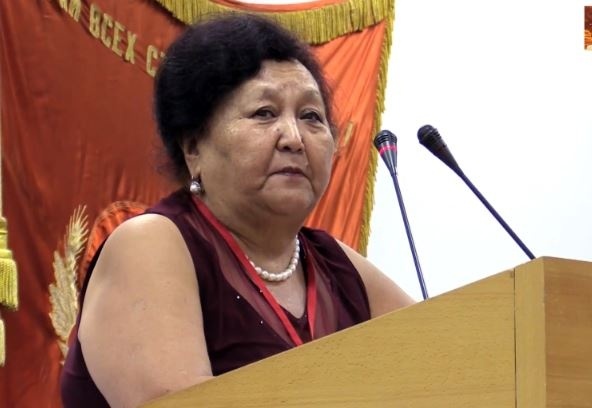Dmitry Peskov: a Russian person works best under pressure – RIA Novosti, 06/27/2022
– The whole world is obsessed with technological sovereignty, why do we need it and at what cost?
– Russia is now facing the trends of international development, as in the XX the threat of the Soviet Union was discovered. This is an unusual role for our state, for our society. And now we have to do what has not been done so far – to resolve the issue of sovereignty. But in no case is it possible that this is only our task, all major countries have long been saying that such an audit is being carried out. Since the second half of the 2010s, the return of large-scale production began in the United States, China is consistently closing all production facilities, and India is now very actively involved in this.
This means that takeovers around the world are taking place in a way that exposes elements of critical privacy in many countries. This is a completely different model of the global economy than the one that has been so far.
And in this sense, we will work on the basis of approaches to settlement. And even where we seem to have no groundwork – as in microelectronics – if we talk about what meets, teams that actually meet, then you can find extremely interesting solutions that do not completely solve the problem.
The same thing happens, for example, in aviation. Fifty years ago, there were several next aircraft manufacturers in the world, they competed. If we talk about long-haul wide-body airliners, there are two companies. But their vulnerability is incredibly high – many countries, including Russia and China, began promising projects for their aircraft several years ago. Of course, there will be other countries too: hasn’t the innovation sphere spawned start-ups, some machines that can perform the same functions, but cheaper and easier.
– What to implement technologies that have already been tested?
– It’s very simple: there is a consumer, and he wants fast, cheap and good. This is his main requirement for a product that enters the market. When you realize your own, you will not be able to do fast-cheap-good, you will, by inheritance, at the beginning, do long, expensive and bad things. And if a country has the will to create this product or stock, then it creates such preferences, such conditions, so that “long-expensive-bad” can happen in “cheap-good-quick”.
– How long can it take?
– According to the experience of the vast Asian “tigers” – Japan, South Korea and China have traveled this road in 10-20, somewhere in 30 years. It is absolutely fair, and everyone understands that this cannot be done on all fronts. The question is not to point out everything that others do, so the question is not posed. The question is to have your “Diamond Technological Development”, which either only you have, that is, this technological superiority, or three to five other countries in the world have it, that is, technological parity.
June 21, 19:51
If we talk about the realistic task of technological sovereignty, it looks like this. In 10-20 years, you can create 30-50 years before the priority developments, which include the exhibits of our “Diamond Technology Fund” and require food, security, medicine and connectivity in the country in case of any cataclysms. And unlike the usual Diamond Fund – diamonds are eternal – technologies depreciate, which means they need to be constantly replenished.
– Did you survive the presidential idea of the “Diamond Technological Fund”?
– Many things are discussed, I will not comment on it. The task of the president on technological sovereignty has been set, but how it will be implemented and what it will turn into – there are many different directions and approaches.
– Can Russia create its own from scratch?
– It is categorically impossible to say that there is something that we cannot do. With rare exceptions, like a factory for the production of five-nanometer circuits. The answer is simple – we will not cope with everyone, but in the dialogue of the coalition with the united countries and with a special set of employed technologies, we will cope.
– That is, we will have a technological breakthrough?
– Will be. Different countries have different times. Obviously, there are risks in agriculture – the criticality, for example, of the seed fund, but it has always been. Identified shortages will arise, as there are now shortages of high-speed elevators. The situation in civil aviation will be difficult. In the production of smartphones, electronics.
Universities will provide technological sovereign control of Russia, expert believes
– You know, judging by my information, Chinese, Korean manufacturers are ready to accommodate everyone. There are breaks in the chains of cases, but it is impossible to say that this is of some kind of systemic nature. Today, by the way, the coolest electric car is Chinese, not American. Tesla is resting. Therefore, the prospects for replacement are on the horizon of five to seven years.
– That is, collaborations and new branches of import?
– Now we are opening markets to quickly consolidate the departed players from Europe. And then, if it is a Russian manufacturer that we are ready to compensate for everything, we will support, not a foreign manufacturer. Where the competence has already grown, the absolutely normal policy is fully respected.
– Could you list the industry in which it would be necessary to create a conditional “alarm suitcase” of reserves, so as not to be without components for derivatives?
“We have a national technology initiative end-to-end technology model that falls under that definition. Now we have completed it, it looks like this: there is a block for digital technologies that allow us to design the final product. Digital twin technology, big data collection, proprietary AI solutions, proprietary wireless standards. This is the first block of digital technologies that allow you to create a digital infrastructure.
If we are already talking about a specific thing, then the manufacturing unit includes methods for manufacturing any type of material to size. Modern materials are not iron, but iron with a likely approach to specific engineering furniture.
What we did very little, what we refused to do, is the engine. And I expect that we will now roll out some additional engine programs. The very paradigm of what an engine is, even what muscles are, a drive force is changing. For us, the engine is such a colossus. But, for example, in a large plane, if it is an airplane, this is no longer the case. That is, the entire aircraft becomes an engine – it is distributed, it has propellers in one part, energy, for example, is distributed over all wings, control systems are placed in the tail.
The engine distribution system is a completely different, completely new paradigm that is emerging today. And the engines must be domestic. What is directly important to us. And the same logic applies to geoinformation systems and space communication systems. Space is closer than ever to Earth.
– Are the environmental agenda and environmental issues also in the spotlight?
– Climate technologies must be in the country. Three types of technologies: water management, methane and carbon cycle management, and terraforming. This is how to dig a mountain in the right place, how to grow a mountain in the right place, and how to dig a channel, how to change, drain a swamp or, on the contrary, create a swamp. There are a huge number of tasks. And, of course, we are entering the wall of building new logistics corridors.
We have launched a huge southern route connecting Russia with the world – through Astrakhan, the trans-Caspian highway and further through Iran, from one side, to Africa, the Middle East. On the other hand, to India and China. The combination of the Northern Sea Route and the Southern Trade Route is a completely unusual paradigm. And for this it is necessary to return the technology of terraforming.
– If from special goals and turn to smaller ones. The software of government agencies, important infrastructure, and so on – it has long been said that it is necessary to switch to Russian. Do you really need to drop everything, urgently touch and reinstall?
– It is very similar to a discussion, the same story about “long, expensive, bad.” On the other hand, the way we detach ourselves from the markets shows that in this period of assessment those who said that it is necessary to focus on the domestic, even if it is long, expensive and bad, were right.
– And now what to do?
– It’s always the same: a Russian person works best under pressure.
– Of course, until you kick it, it will not fly.
– So they kicked. Not preferred – they kicked from the other side, and all the flies, all the observations. Mintsifra do a small amount of work in terms of coercion, coercion, motivation and everything else. We see how these companies are understood before our eyes, even those that seem to have been “relocated”, but de facto renamed, are fighting for the Russian market. There is potential for the offshore programming market, which is growing in Russia. For example, Intel had several thousand highly qualified programmers who worked in Nizhny Novgorod and worked exclusively for Intel; there was no software in Russia. Now Intel has left Russia, but the creators have remained.
– Flew loudly …
– They flew away loudly, yes, but it was still a factor, a psychological special operation. I can say that we have made special chat bots, IT people who come back, knock, and we have search opportunities in Russia for them. We connect them in such a way that there is no transfer of health data, directly with potential employers.
– That is, the process has begun? Did people really decide to come back?
“People are coming back, of course.
– And finally, the question that worries everyone. Can we stay without the global Internet? Is it technically possible?
– Yes. But, what our country has done very well over the past few years is that we have arrived at this scenario, even if we have turned it off. And there was no point in turning it off. Therefore, Russia is not going to turn it off, and if it is turned off for us from the outside, then we will survive: local resources will work, and we will complete the construction of connectors to the global Internet. The situation repeated itself in 1991, when the su domain was managed by a Finnish student from Helsinki, we will no longer have it.
Dyumin called the ways to achieve the technological sovereignty of Russia




